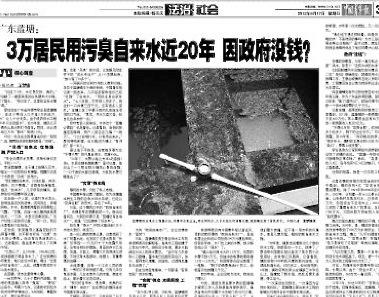Recognizing that its survival is linked to winning the fight against corruption—or at least giving the appearance of being tough on graft—China’s ruling Communist Party executed two former public officials Tuesday.
After his conviction in May on charges of bribery, embezzlement and abuse of power, Xu Maiyong, former vice-mayor of the wealthy resort city Hangzhou, was unable to win an appeal hearing and was sentenced to death and confiscation of personal property.
Known as “3 Much” Xu (much money, much property and much women), his ill-gotten gains totaled US$24 million from bribes, US$8 million from embezzlement and US$10 million from illegally diverting funds, according to the state-run Xinhua.
These sums earned Xu the dubious distinction of “China’s Most Greedy,” a title previously held by Sinopec general manager Chen Tonghai. Chen gobbled up $28.7 million and was convicted in 2009, but given a suspended death sentence.
The second former official, Jiang Renjie, was a city planner in Suzhou, Jiangsu. Although he cooperated with the investigation, his $16 million in bribes taken from developers was deemed reason enough for execution.
Since information on capital punishment is considered to be a “state secret,” the methods used to execute the men are not known.
Other death sentences handed down in the last seven months include: a Ms. Luo of Fushun city, Shi Wanzhong, Human Resources Director for state-run telecom China Mobile, and Xu Zongheng, former Mayor of the export and manufacturing hub of Shenzhen.
Appeals are permitted and a two-year reprieve is often allowed, but with the lack of an independent judiciary free from Party control, those convicted face difficulties exculpating themselves. Chinese lawyers and legal analysts frequently complain of the lack of transparency in the Chinese criminal justice system, particularly as it relates to sensitive political matters.
Corruption is rampant in China and is an established and entrenched part of one-Party rule. At the same time, communist leaders recognize that the image of rampantly corrupt officials negatively impacts on perceptions of the Party among the masses. They thus take high-profile measures to punish the more ostentatious cases, in an attempt to reassure the public
General Secretary of the CCP, Hu Jintao, said at the 90th anniversary of the founding of the Party earlier in July, that “if not effectively curbed, corruption will cost the Party the trust and support of the people.” Though for many Chinese, that point was reached long ago.
Two Chinese Officials Executed for Corruption
Corrupt officials in China sometimes get executed in an attempt to reassure the public that the Party is tough on graft.
|Updated:



